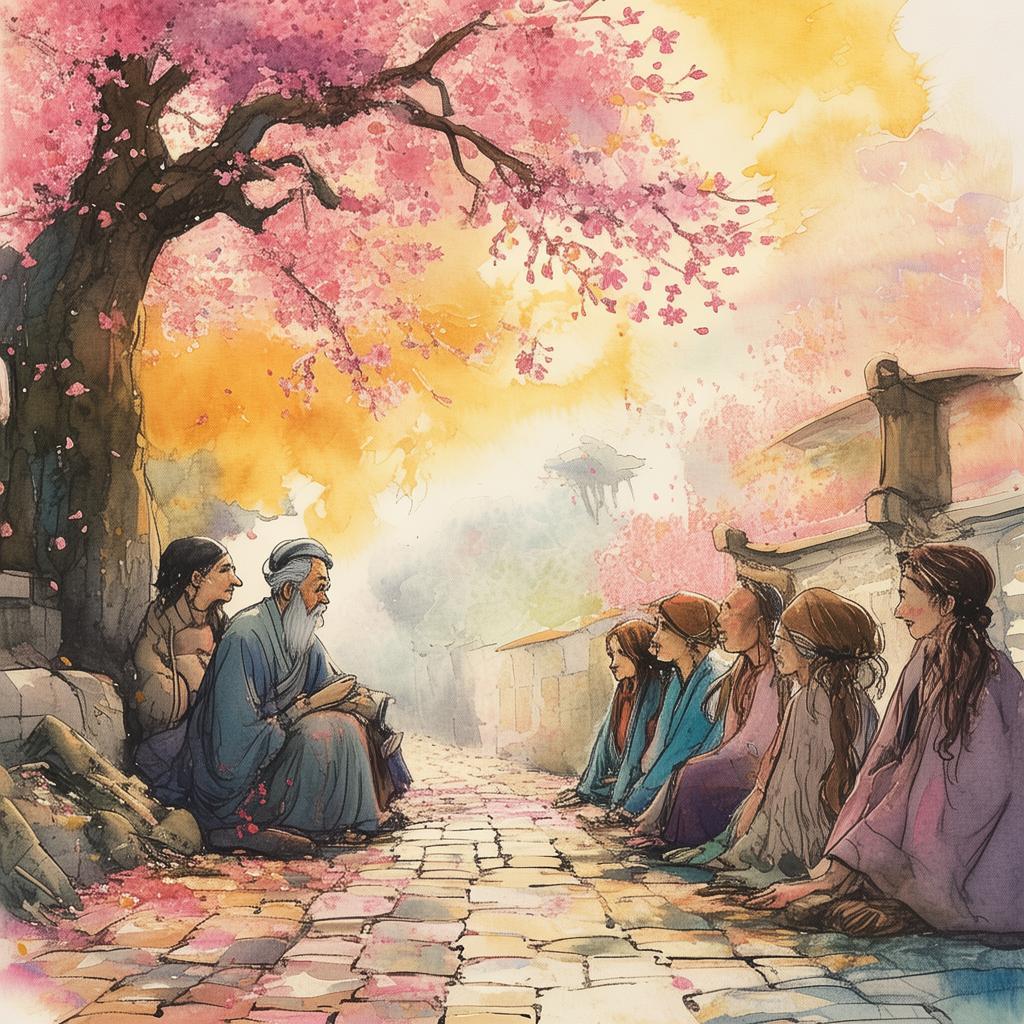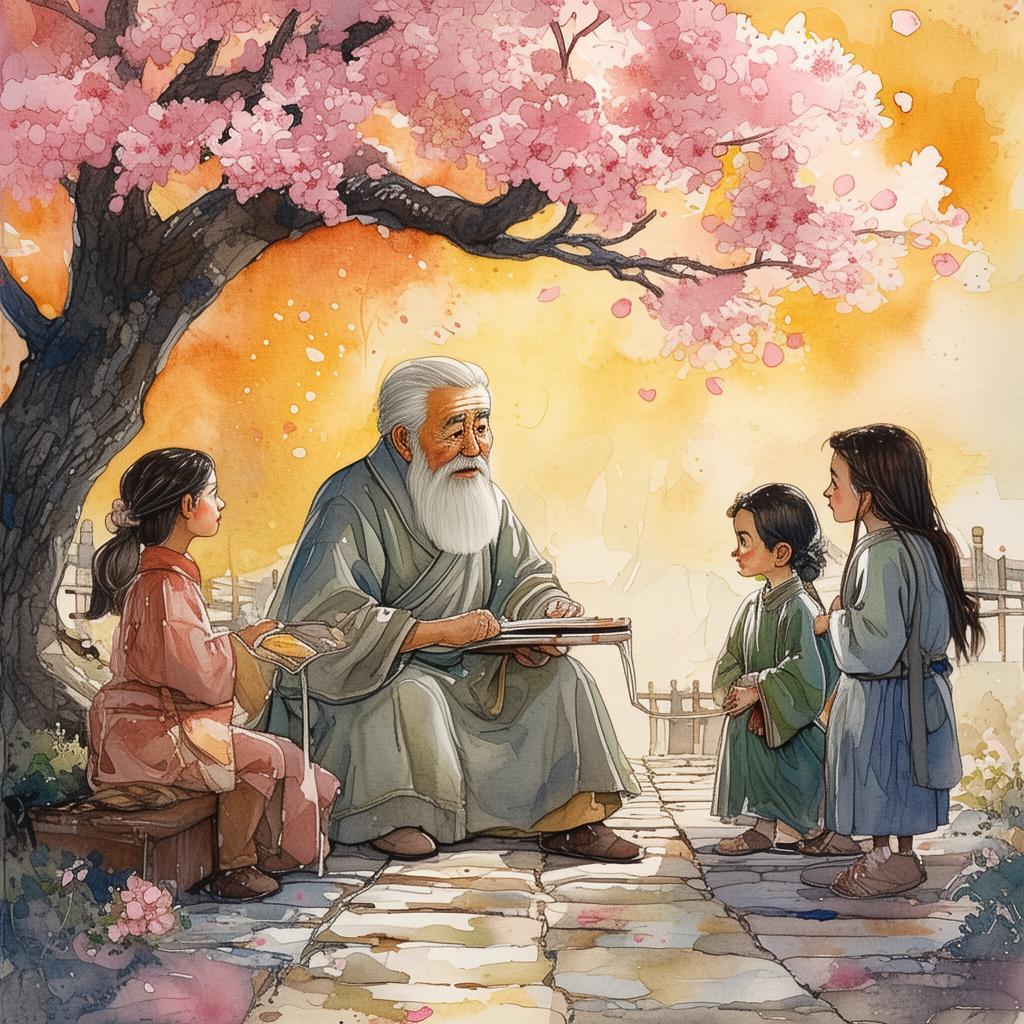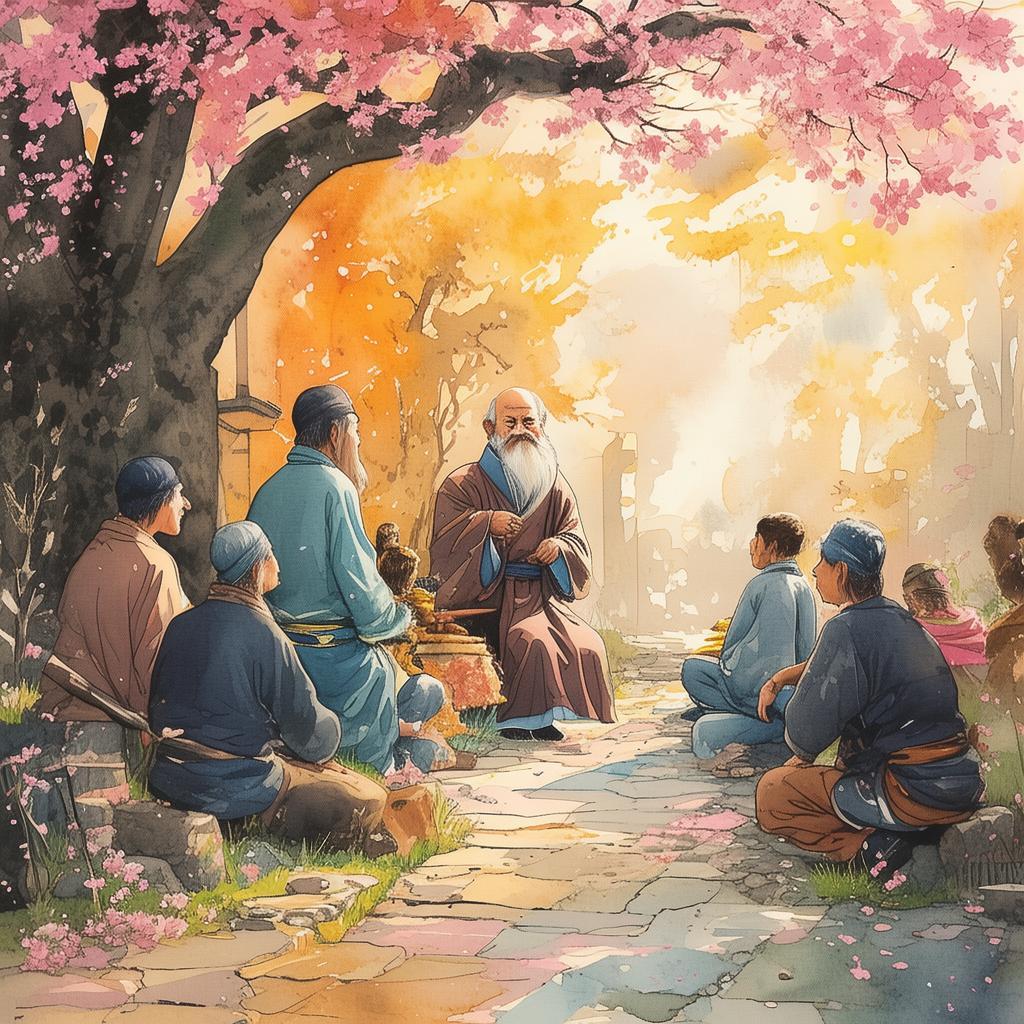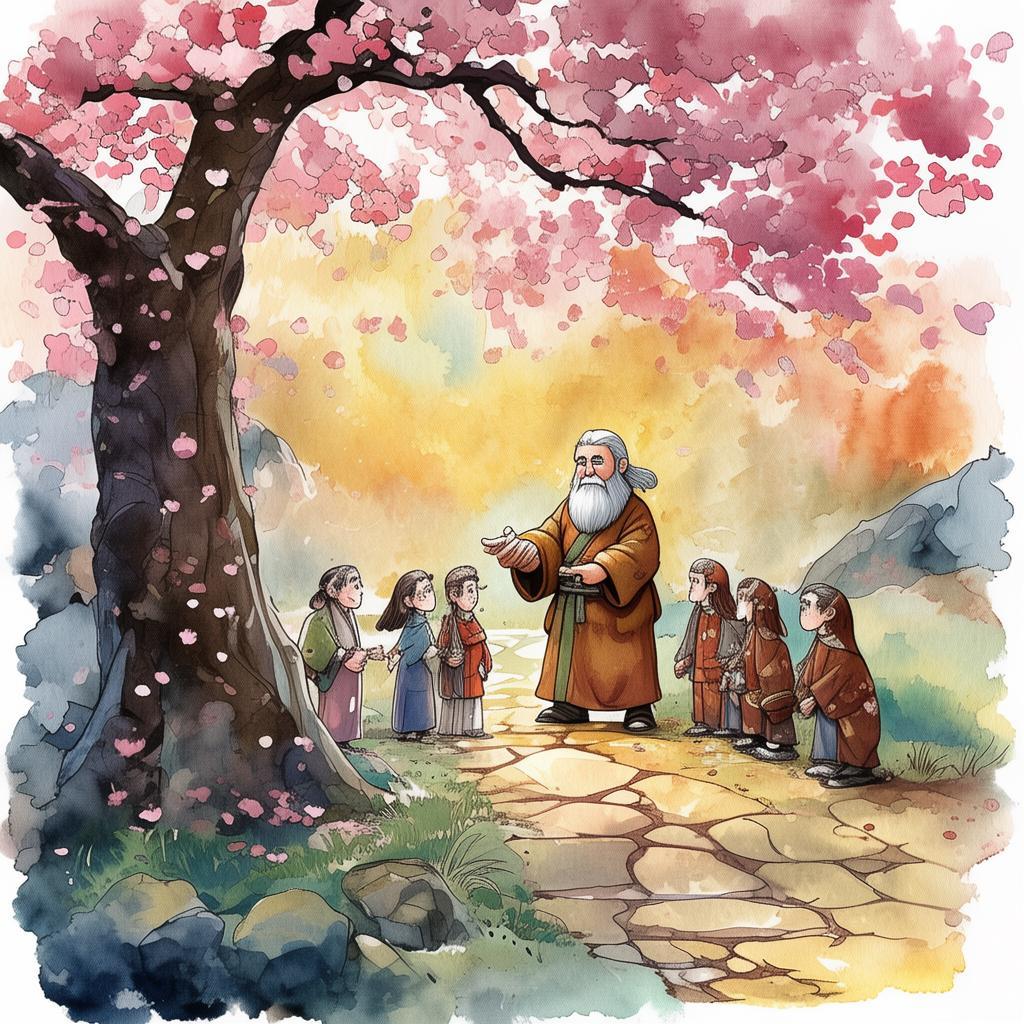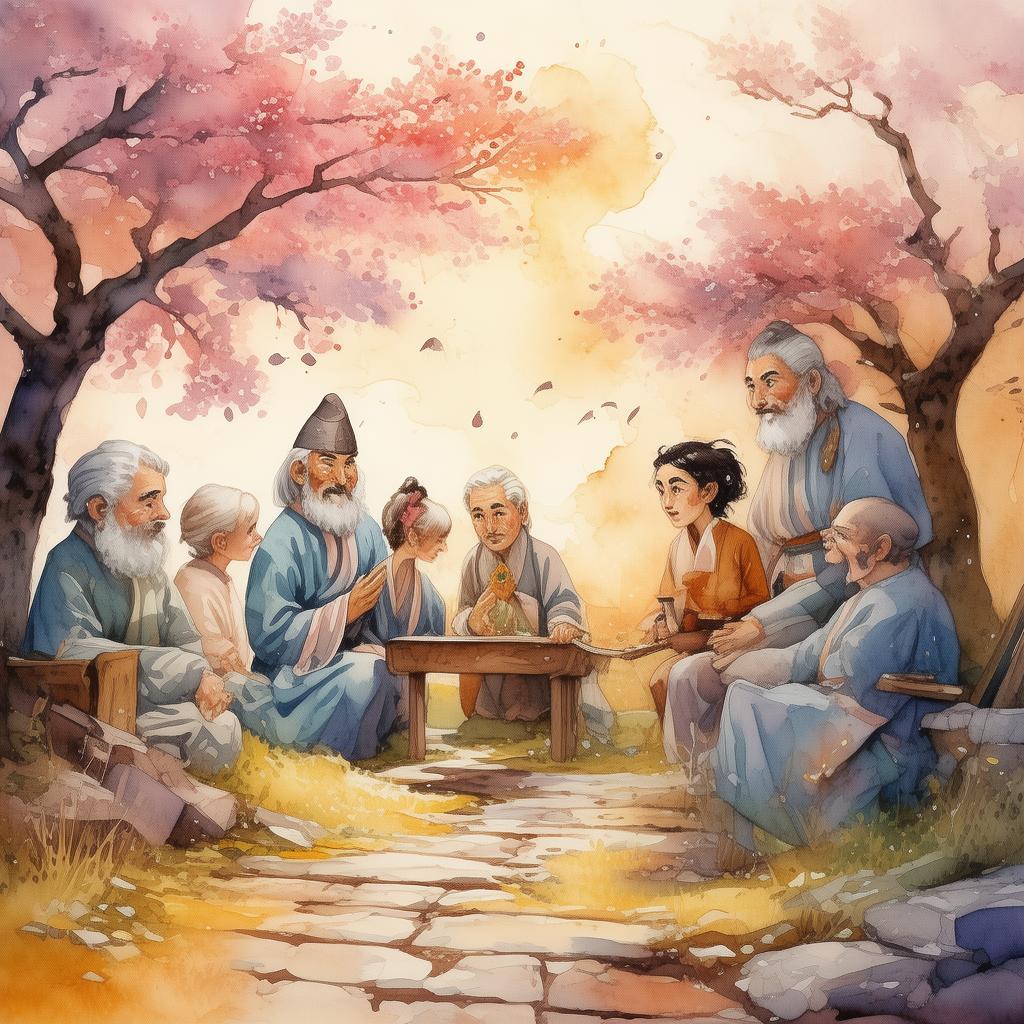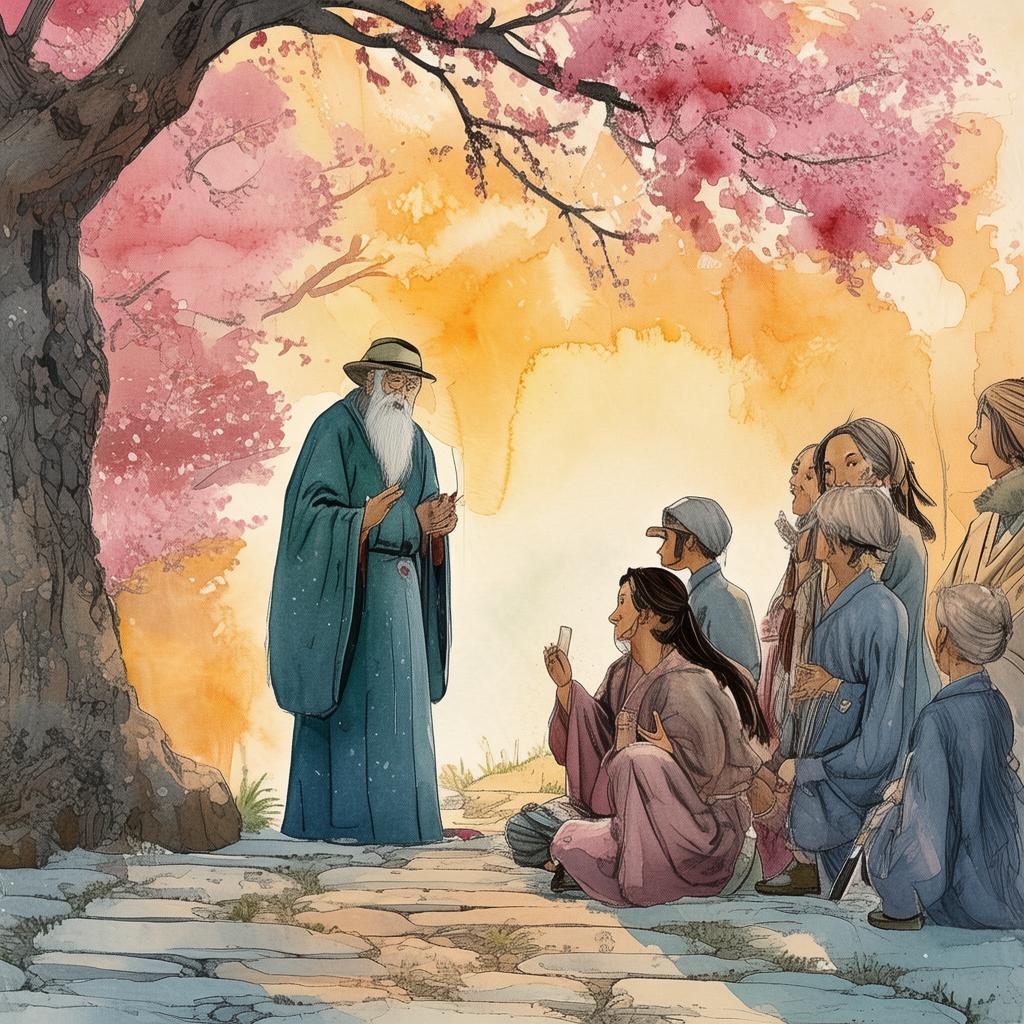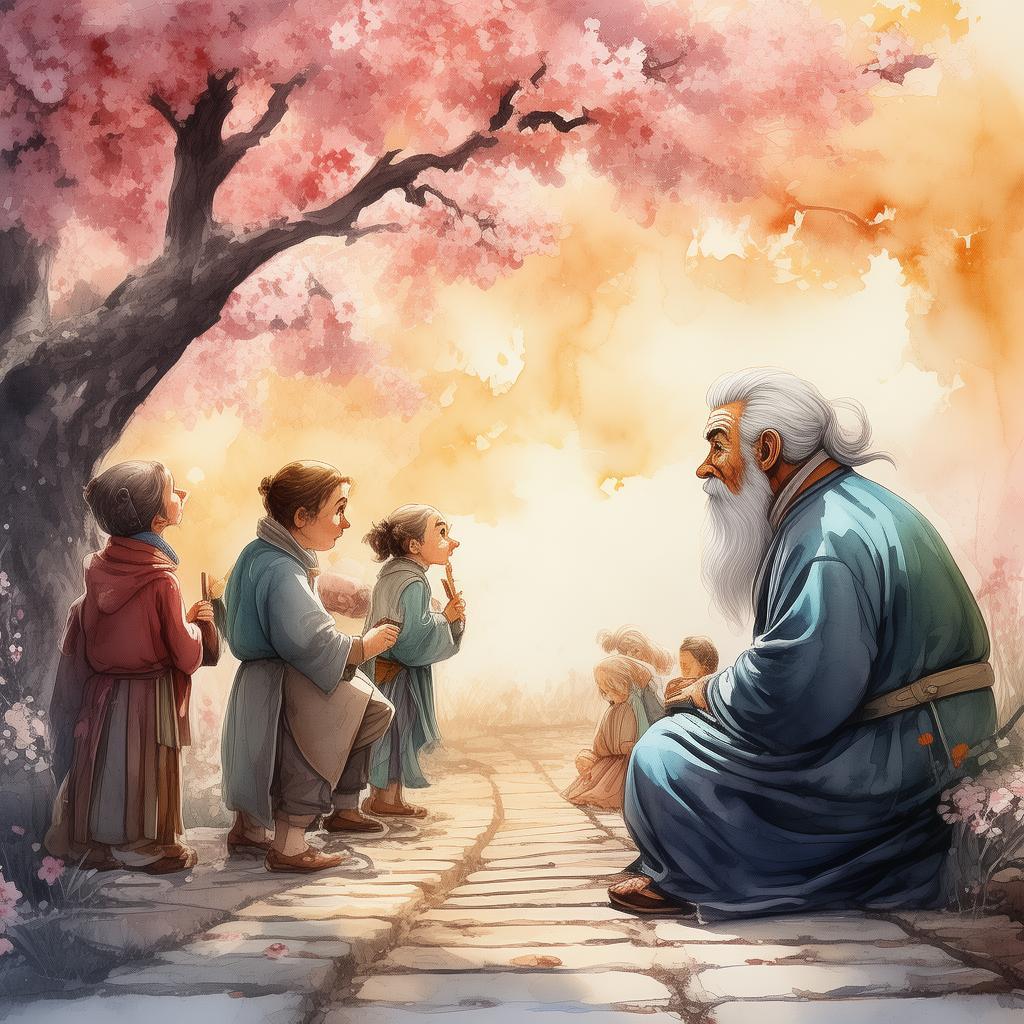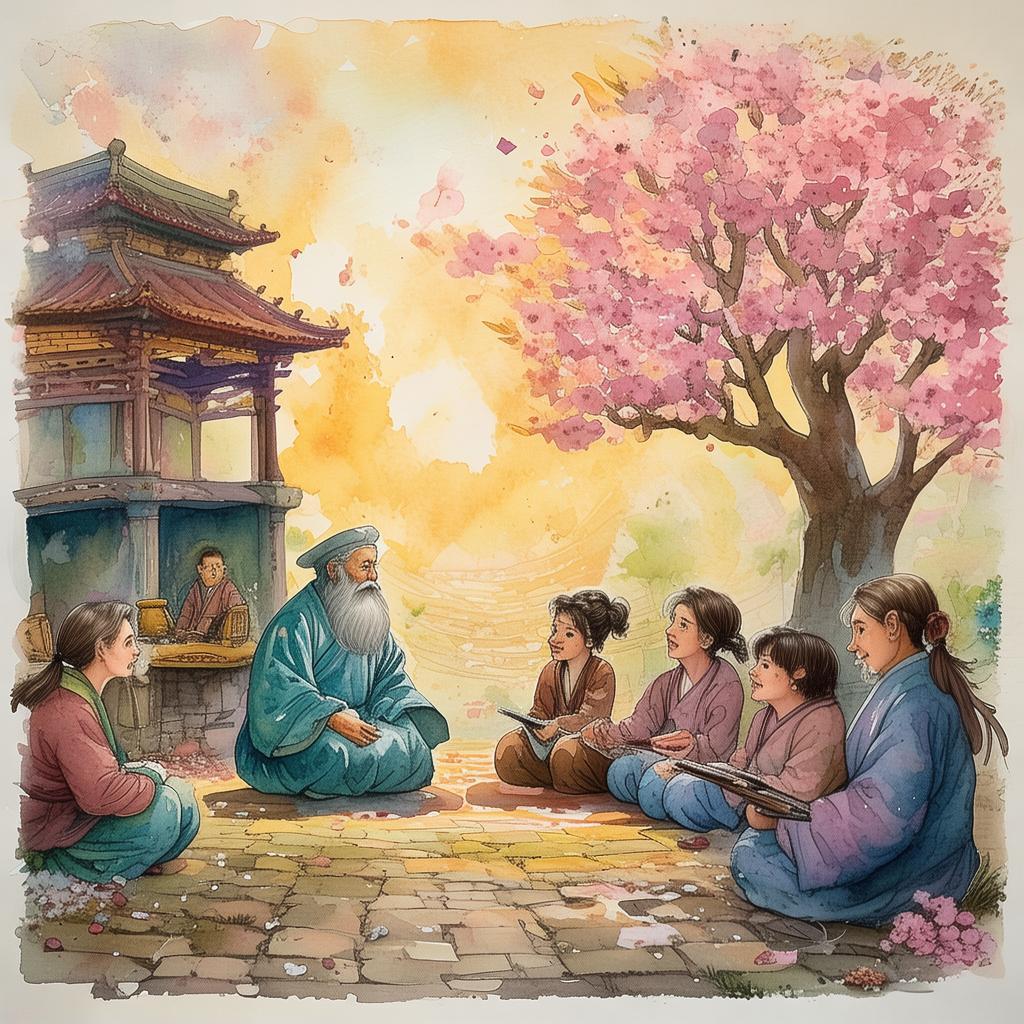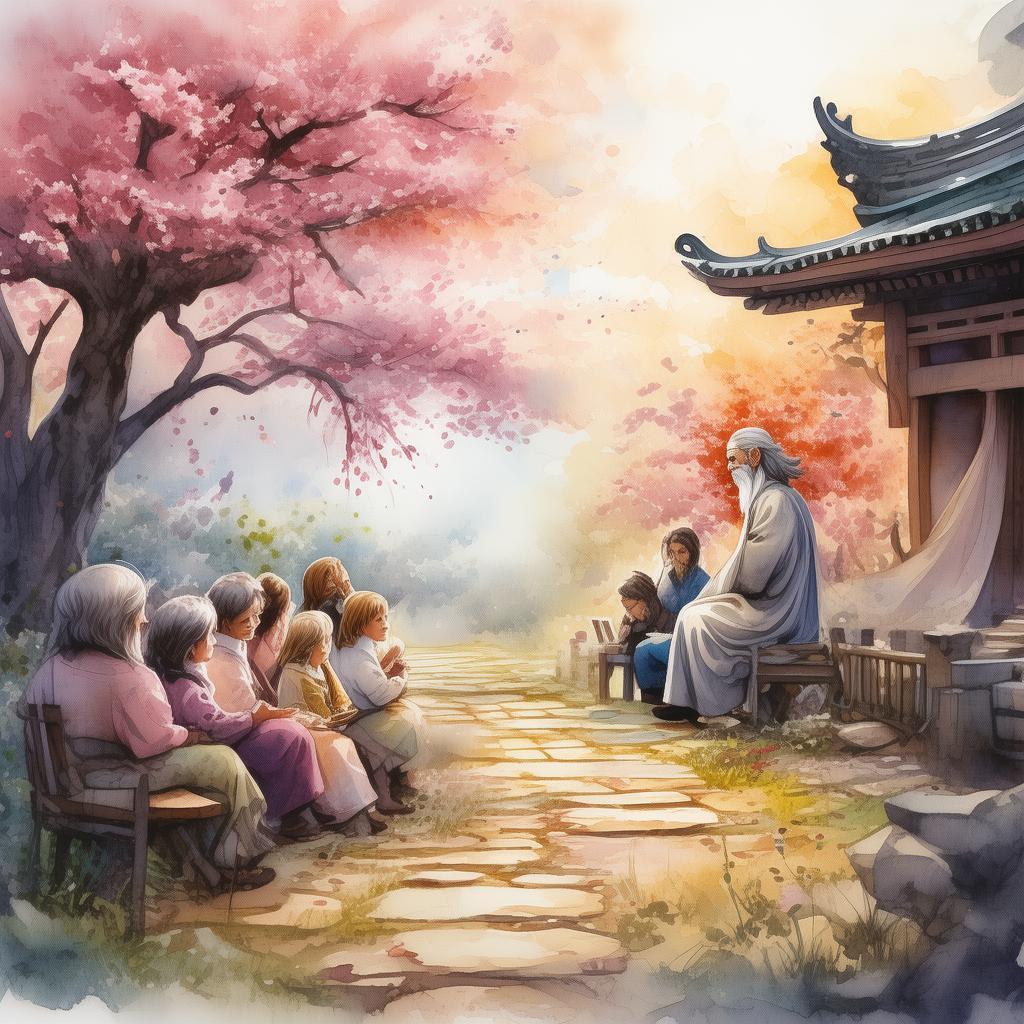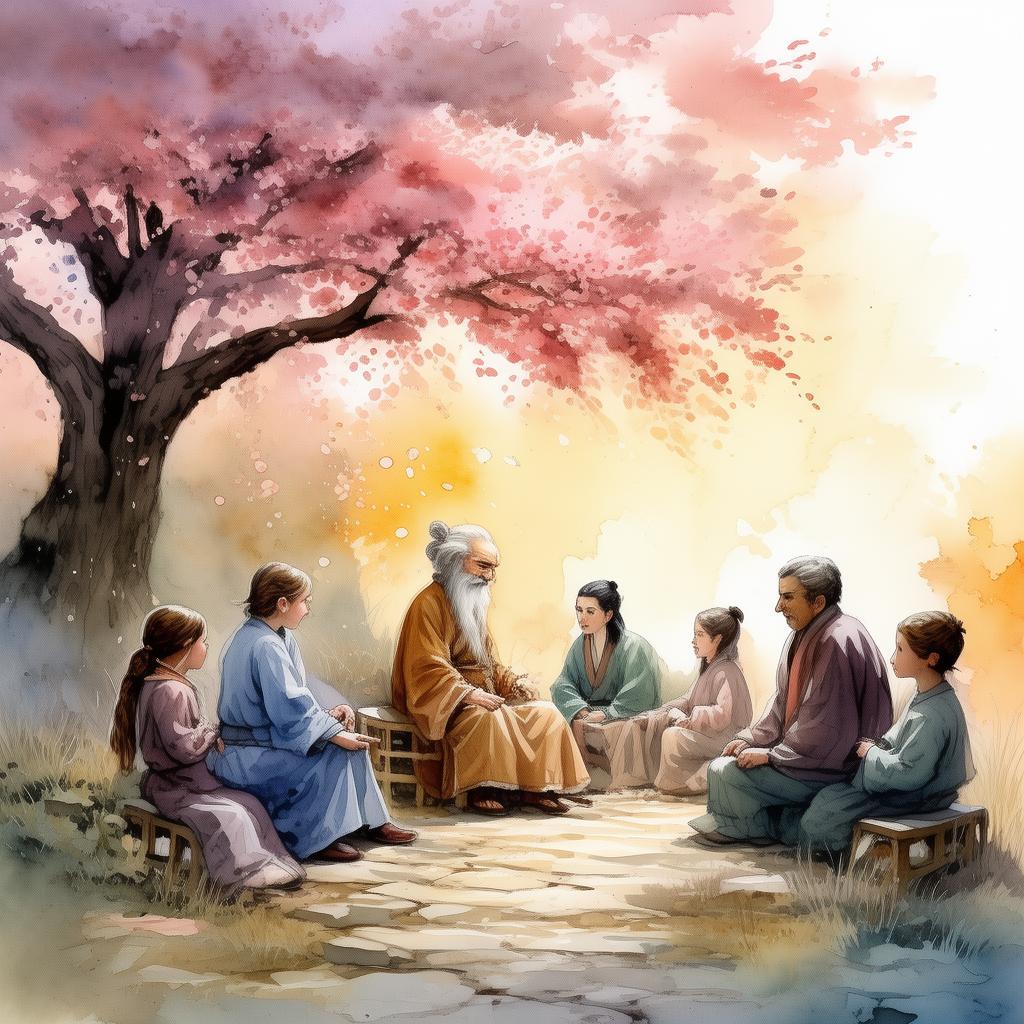The Labyrinth of Echoes: The Quest for the Phantom's Paradox
In the ancient city of Luminara, where the sun dipped below the horizon, casting a golden glow upon the cobblestone streets, there stood a grand library known as the Arcanum. Its towering shelves held the wisdom of ages, and its walls were adorned with cryptic symbols that whispered secrets of the universe. Within this sanctuary of knowledge, a young scholar named Ming roamed, seeking the answers that would define his destiny.
Ming was no ordinary scholar. His mind was a canvas, painted with dreams of understanding the enigmatic Phantom's Paradox, a theory that suggested the boundaries between reality and illusion were as thin as a sheet of paper. To him, this paradox was not merely a philosophical conundrum; it was a key to unlocking the mysteries of existence itself.
One evening, as the moon hung low in the sky, casting a silver glow upon the Arcanum's entrance, Ming stumbled upon a peculiar tome. The title, "The Labyrinth of Echoes: A Quest Through the Labyrinth of Reality," caught his eye. The book spoke of a labyrinth, a place where the lines between reality and illusion were so blurred that even the most seasoned scholars had failed to return.
Determined to uncover the truth, Ming set out on a quest that would take him through the heart of the labyrinth. He was armed with nothing but his wits, a torch, and the knowledge he had accumulated over years of study.
The labyrinth was a maze of twisted paths and illusions that seemed to mock the very essence of Ming's quest. At every turn, he encountered images of himself, some smiling, others weeping, all of them pointing him in different directions. The Phantom's Paradox seemed to be alive, taunting him with the promise of answers that were just out of reach.
As Ming ventured deeper, he discovered that the labyrinth was not merely a physical place; it was a reflection of his own mind. Each path he took was a piece of himself, a fragment of his reality that he had to confront and overcome. The more he delved into the labyrinth, the more he realized that the true challenge was not to find the way out, but to find the courage to face the truths he had long avoided.
One particularly treacherous path led Ming to a chamber where a voice echoed through the air, speaking in riddles. "You seek the Phantom's Paradox, but it seeks you first," the voice intoned. Ming's heart raced as he pieced together the riddles, each one a puzzle that required him to question his own beliefs and assumptions.
The voice continued, "In the realm of shadows, what is seen is not always real, and what is real is not always seen." Ming's mind raced, and he realized that the labyrinth was not just a test of his intellect, but a test of his character. He had to learn to discern between the illusions and the truths, to see through the facades that he had constructed around himself.
As Ming reached the heart of the labyrinth, he found himself standing before a colossal mirror. In it, he saw not just himself, but all the faces of the scholars who had come before him. They looked back at him with eyes filled with wisdom and sorrow. The mirror was a reflection of the labyrinth, a reflection of his own journey.
Ming took a deep breath and stepped forward, ready to face the final challenge. The mirror shattered, revealing a path that led to a chamber bathed in the light of a thousand stars. In the center of the chamber stood an ancient book, bound in the skin of a dragon. It was the Phantom's Paradox, the very essence of reality and illusion.

Ming opened the book and read the final lines: "The quest is not to find the answer, but to find the courage to ask the question. The labyrinth is within, and the path to truth is the journey of self-discovery."
With that, Ming realized that the quest had not been about finding the Phantom's Paradox, but about finding himself. He had faced his own illusions, confronted his fears, and emerged a wiser, more resolute man.
As Ming stepped out of the labyrinth, the world seemed different. The sun rose, casting a warm glow upon the city of Luminara. He looked around, realizing that the true journey had just begun. The Phantom's Paradox was not a destination, but a guidepost, a reminder that the quest for truth is a lifelong journey.
And so, Ming continued his quest, not as a scholar seeking answers, but as a man seeking understanding, a man who had learned that the most profound truths are often found within the labyrinth of the self.
✨ Original Statement ✨
All articles published on this website (including but not limited to text, images, videos, and other content) are original or authorized for reposting and are protected by relevant laws. Without the explicit written permission of this website, no individual or organization may copy, modify, repost, or use the content for commercial purposes.
If you need to quote or cooperate, please contact this site for authorization. We reserve the right to pursue legal responsibility for any unauthorized use.
Hereby declared.
